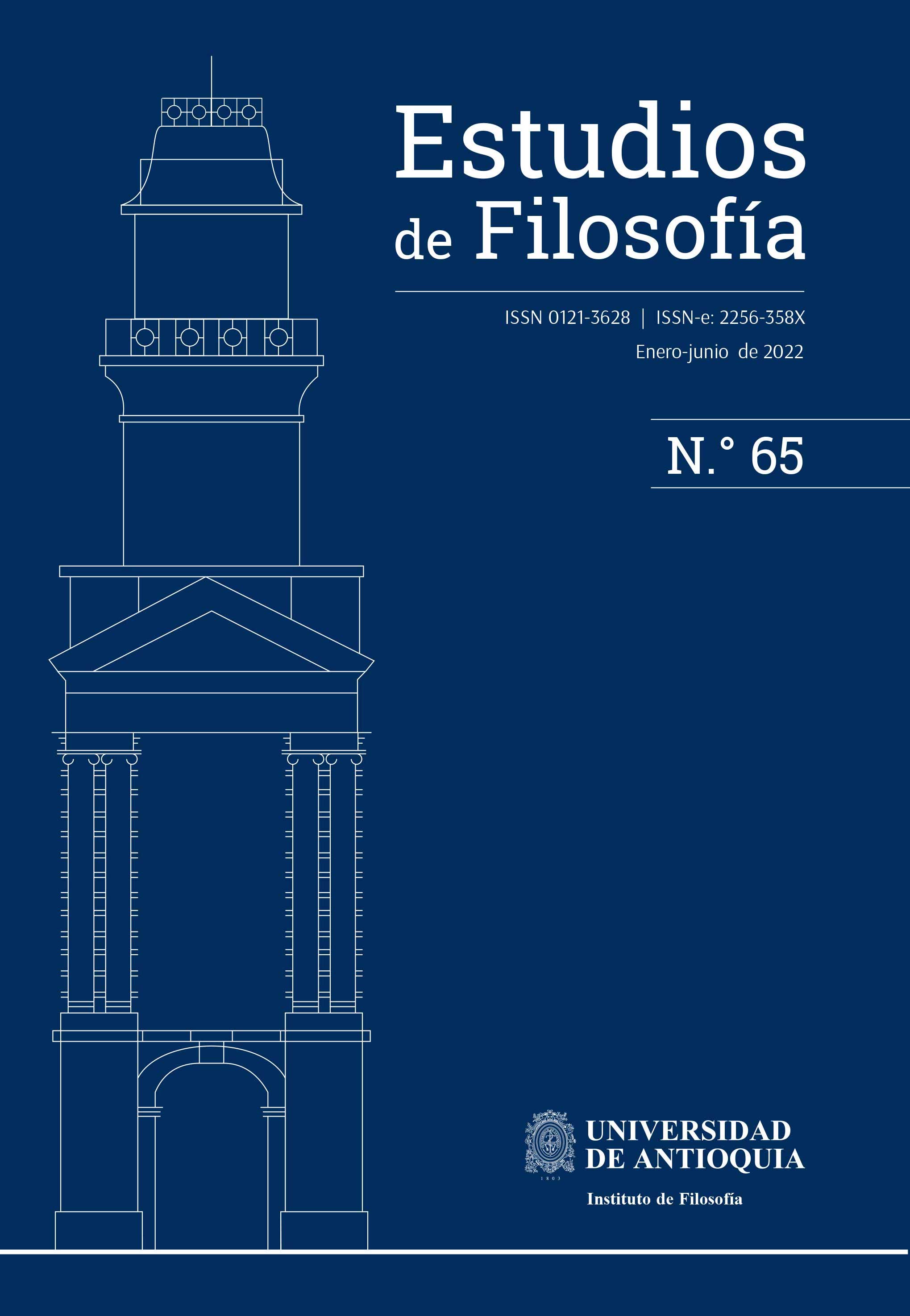Review of book: López Jiménez, C.A. (2018). El terreno común de la escritura: una historia de la producción filosófica en Colombia. Editorial Javeriana
DOI:
https://doi.org/10.17533/udea.ef.347649Keywords:
Philosophy, History, Colombia, Writhing, PracticeAbstract
This review analyzes the book of the young historian and philosopher Carlos Arturo López Jiménez, El terreno común de la escritura highlighting his method to understand the practice of writing philosophy in Colombia between 1892 and 1910. In that sense, more than a criticism of this book, it is an invitation to read it carefully to distance oneself form the limits imposed by professional philosophers who, as judges, judge the past and the very existence of philosophy in Colombia and by extension in Latin America.
Downloads
References
Dávila Dávila, J. M. (2012). Ciencias útiles y planes de estudio en la Nueva Granada: Método racional y canon wolffiano en la filosofía escolar neogranadina (1762-1862). Editorial Javeriana.
Jaramillo Uribe, J. (1964). El Pensamiento colombiano en el siglo XIX. Editorial Temis.
López Jiménez, C. A. (2018). El terreno común de la escritura. Una historia de la producción filosófica en Colombia 1892-1910. Editorial Javeriana. https://doi.org/10.11144/ Javeriana.9789587813180
Ortiz Rodríguez, Á. P. (2003). Historia de la Facultad de Filosofía y Letras 1890-1930. Centro Editorial Universidad del Rosario.
Published
How to Cite
License
Copyright (c) 2022 Jorge Uribe-Vergara

This work is licensed under a Creative Commons Attribution-NonCommercial-ShareAlike 4.0 International License.
Authors who publish with this journal agree to the following terms:
1. The Author retains copyright in the Work, where the term "Work" shall include all digital objects that may result in subsequent electronic publication or distribution.
2. Upon acceptance of the Work, the author shall grant to the Publisher the right of first publication of the Work.
3. The Author shall grant to the Publisher a nonexclusive perpetual right and license to publish, archive, and make accessible the Work in whole or in part in all forms of media now or hereafter known under a Creative Commons Attribution-NoCommercia-ShareAlike (CC BY-NC-SA 4.0), or its equivalent, which, for the avoidance of doubt, allows others to copy, distribute, and transmit the Work under the following conditions: (a) Attribution: Other users must attribute the Work in the manner specified by the author as indicated on the journal Web site;(b) Noncommercial: Other users (including Publisher) may not use this Work for commercial purposes;
4. The Author is able to enter into separate, additional contractual arrangements for the nonexclusive distribution of the journal's published version of the Work (e.g., post it to an institutional repository or publish it in a book), as long as there is provided in the document an acknowledgement of its initial publication in this journal;
5. Authors are permitted, and Estudios de Filosofía promotes, to post online the preprint manuscript of the Work in institutional repositories or on their Websites prior to and during the submission process, as it can lead to productive exchanges, as well as earlier and greater citation of published work (see The Effect of Open Access). Any such posting made before acceptance and publication of the Work is expected be updated upon publication to include a reference to the Estudios de Filosofía's assigned URL to the Article and its final published version in Estudios de Filosofía.















